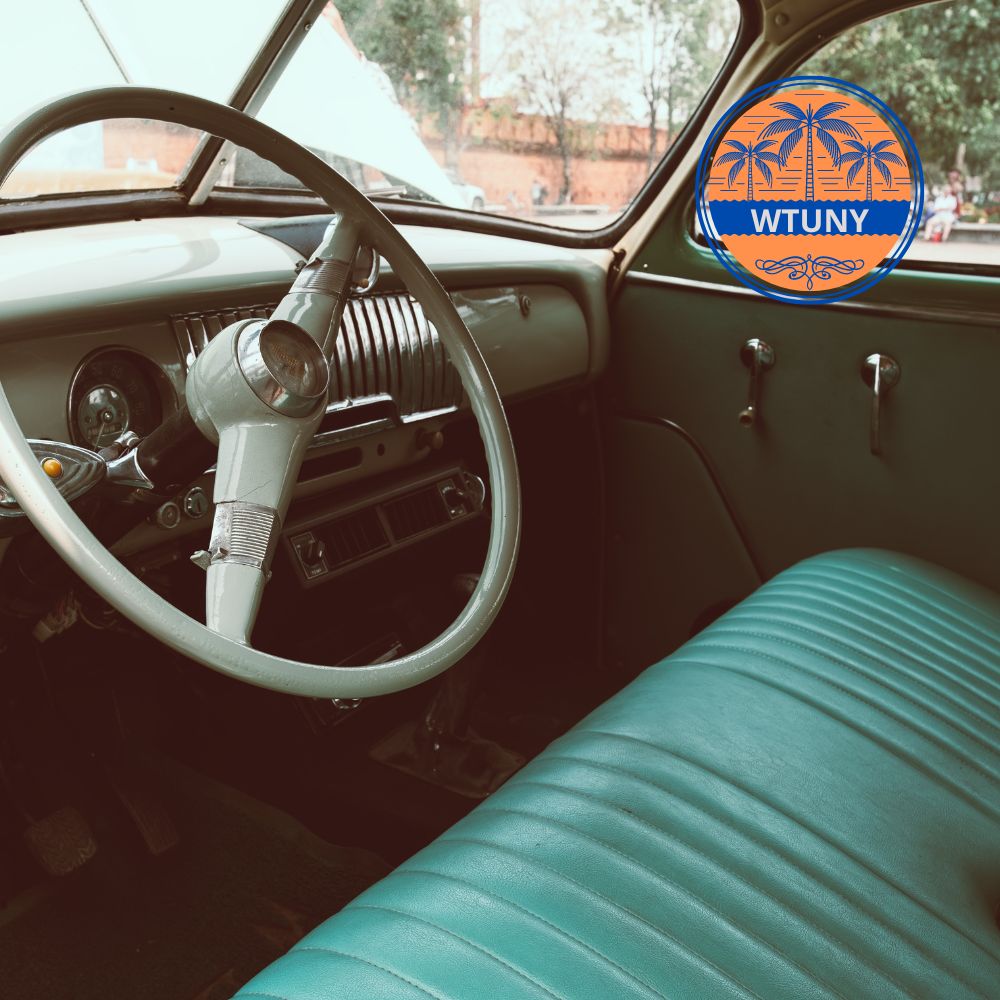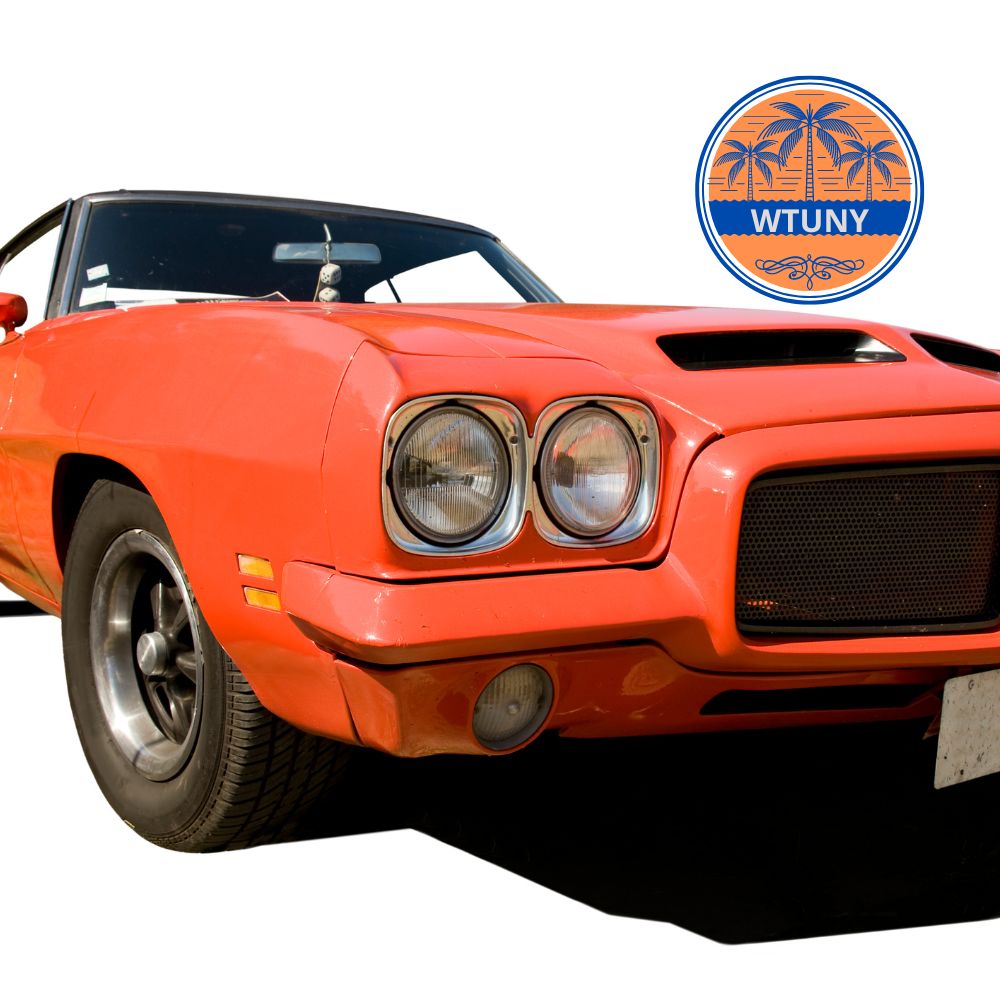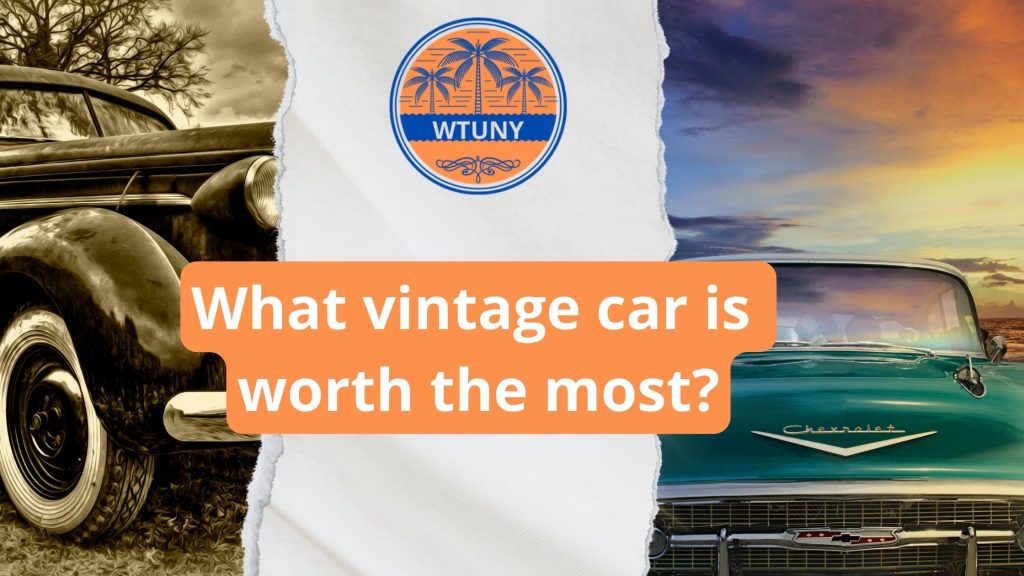Welcome to the fascinating world of vintage car values! If you’re a fan of classic automobiles and curious about the collector’s market, you’re in for a treat. In this article, we’ll delve into the realm of vintage car values and uncover which models are considered the most valuable in the collector’s market.
When it comes to determining the worth of a vintage car, several factors come into play. Classic automobiles that have stood the test of time and garnered a strong following tend to command high prices. The age, rarity, condition, provenance, and desirability among collectors all contribute to a vintage car’s value.
In the following sections, we’ll explore the most influential factors that determine vintage car values and highlight some of the most valuable models in the market. You’ll discover iconic names like the Ford Mustang, Chevrolet Corvette, and Jaguar E-Type, which have consistently held their value due to their unique features and historical significance.
But it doesn’t stop there. for those considering investing in vintage cars, we have you covered. In the later sections, we’ll provide essential tips and considerations to help you navigate the vintage car investment landscape. From financial returns to maintenance costs and market trends, we’ll equip you with the knowledge you need to make informed decisions.
So, whether you’re an avid collector or a budding enthusiast, this article will shed light on vintage car values and inspire you to explore the world of classic automobiles. Let’s embark on this fascinating journey together!
Factors that Influence Vintage Car Values

In the world of vintage cars, various factors come into play when determining their values. These factors contribute to the allure and desirability of classic automobiles, making them highly sought after by collectors and enthusiasts alike. Let’s explore the key elements that influence vintage car values:
Age
Age is a significant factor in determining the value of a vintage car. The older the vehicle, the more likely it is to be considered a classic. Cars from the early to mid-20th century are often highly valued for their historical significance and the nostalgia they evoke.
Rarity
The rarity of a vintage car plays a crucial role in determining its value. If a particular model is produced in limited quantities or has become scarce over time, its value is likely to increase. Collectors and enthusiasts appreciate the exclusivity and uniqueness that rare vintage cars bring to their collections.
Condition
The condition of a vintage car is another vital factor influencing its value. Cars that have been meticulously maintained and restored to their original glory tend to command higher prices. On the other hand, vehicles in poor condition or requiring extensive repairs may have significantly lower values.
Provenance
The provenance, or the historical background and ownership history, of a vintage car can also affect its value. Cars with notable ownership or connections to significant events often carry a premium. Documentation that confirms a car’s history and authenticity adds to its value and appeal among collectors.
Desirability among Collectors
Finally, the desirability of a vintage car among collectors can strongly impact its value. Some models have enduring popularity and are highly sought after due to their iconic design, performance, or cultural significance. The demand for these retro vehicles can drive their values upwards in the collector’s market.
By considering these factors, collectors and enthusiasts can gain a better understanding of why certain vintage cars are valued higher than others. The combination of age, rarity, condition, provenance, and desirability creates a dynamic marketplace where the worth of these classic automobiles continues to evolve.
Most Valuable Vintage Car Models

In the world of vintage cars, certain models have stood the test of time and continue to command high values in the collector’s market. These iconic automobiles not only possess unique features but also hold historical significance that resonates with enthusiasts and collectors alike. Let’s explore some of the most valuable vintage car models that have captivated the hearts and wallets of automotive enthusiasts.
Ford Mustang
The Ford Mustang, introduced in 1964, is one of the most recognizable and beloved vintage cars today. With its legendary design, powerful engines, and wide range of options, the Mustang quickly became a symbol of American performance. From the classic first-generation models to the highly sought-after Shelby GT500, Mustangs have maintained their status as highly desirable collector’s cars.
Chevrolet Corvette
Another iconic name in the vintage car world is the Chevrolet Corvette. From its debut in 1953, the Corvette has been synonymous with style, performance, and innovation. Over the years, Corvette models like the Sting Ray, ZR1, and Grand Sport have become highly coveted by collectors, thanks to their sleek designs, powerful engines, and racing heritage.
Jaguar E-Type
The Jaguar E-Type, or XK-E, made waves when it was unveiled at the Geneva Motor Show in 1961. Its stunning design, advanced technology, and impressive performance captivated the automotive world. With its long bonnet, sleek lines, and powerful engine options, the E-Type became an instant classic. Today, this vintage car is highly sought after by collectors due to its timeless beauty and impeccable craftsmanship.
| Model | Manufacturer | Year Released | Highest Auction Price |
|---|---|---|---|
| Ford Mustang | Ford | 1964 | $3.74 million (1967 Shelby GT500 Super Snake) |
| Chevrolet Corvette | Chevrolet | 1953 | $3.85 million (1967 L88S Corvette) |
| Jaguar E-Type | Jaguar | 1961 | $7.37 million (1961 E-Type Lightweight) |
These vintage car models represent just a fraction of the immense collector’s market. Their enduring popularity, combined with their unique features and historical significance, makes them highly valuable and sought-after by automotive enthusiasts across the globe.
Investing in Vintage Cars: Tips and Considerations

Are you considering investing in vintage cars? Whether you’re a seasoned collector or a novice enthusiast, it’s important to have the right information and guidance to make informed decisions. In this section, we will provide valuable tips and considerations that can help you navigate the vintage car investment landscape.
Finding the Right Vintage Car

When searching for a vintage car to invest in, it’s crucial to understand the market trends and the specific factors that influence vintage car values. Classic automobiles that are in high demand among collectors, such as the iconic Ford Mustang or the timeless Chevrolet Corvette, tend to hold their value well over time. Consider the popularity and desirability of the model you’re interested in to ensure potential financial returns.
Assessing Potential Financial Returns
“Investing in vintage cars can offer attractive financial returns, but it’s important to approach it with a long-term perspective,” says John Anderson, a vintage car expert. “While some vintage cars may appreciate rapidly in value, it’s a market that can also experience fluctuations. Ensure you have a clear understanding of the financial risks and rewards before making any investment.”
Perform thorough research on vintage car values, consult with experts, and consider historical data to assess the potential financial returns of your investment. It’s essential to evaluate the condition of the car and its rarity, as these factors heavily influence its value. Additionally, keep in mind that maintenance and restoration costs can significantly impact your investment’s profitability.
Market Trends and Future Demand
Stay informed about the latest market trends and anticipate future demand for vintage cars. Understanding the factors that drive the market can help you make strategic investment decisions. Follow industry publications, attend car shows and auctions, and engage with other enthusiasts and collectors to gain insights into the evolving vintage car market.
Importance of Documentation and Authentication
When investing in vintage cars, proper documentation and authentication are vital. Ensure that any car you consider purchasing comes with complete and accurate documentation, including the car’s history, maintenance records, and any previous restorations. Authenticity verification is crucial, so consult reputable experts or organizations to authenticate the vintage car you’re interested in.
| Consideration | Explanation |
|---|---|
| Financial Returns | Thoroughly assess potential financial returns and risks before making an investment. |
| Market Trends | Stay informed about market trends and future demand to make strategic investment decisions. |
| Condition and Rarity | Evaluate the condition and rarity of the vintage car as these factors heavily influence its value. |
| Documentation and Authentication | Ensure proper documentation and authentication to establish the car’s history and authenticity. |
By considering these tips and factors when investing in vintage cars, you can make informed decisions and maximize your chances of a successful investment. Remember, investing in vintage cars is not only a financial endeavor but also a passion for classic automobiles that will bring you joy and a connection to automotive history.
Conclusion

In conclusion, vintage cars are more than just vehicles. They evoke nostalgia, represent a bygone era, and captivate the hearts of collectors and automotive enthusiasts alike. These classic automobiles hold a special place in the world of automobiles, and their values are influenced by a combination of factors.
Factors such as historical significance, rarity, condition, and demand among collectors play a vital role in determining a vintage car’s value. Iconic names like Ford Mustang, Chevrolet Corvette, and Jaguar E-Type have consistently commanded high prices in the collector’s market due to their timeless design and historical significance.
Understanding the factors that contribute to vintage car values is essential for anyone considering buying, selling, or investing in these retro vehicles. Whether you’re an avid collector or a casual enthusiast, by comprehending the unique features and historical background of a vintage car, you can make informed decisions and ensure a rewarding experience in the world of classic automobiles.
So, embrace the allure of vintage cars, explore their rich history, and dive into the captivating world of classic automobiles. Whether you’re appreciating their beauty from afar or driving one on the open road, vintage cars are a testament to the artistry, craftsmanship, and enduring appeal of automotive design.
FAQ
What determines the value of a vintage car?
The value of a vintage car is influenced by several factors such as its age, rarity, condition, provenance, and desirability among collectors. These elements contribute to the overall worth of the vehicle in the collector’s market.
Are vintage cars a good investment?
Investing in vintage cars can be a lucrative endeavor. However, it is important to consider factors such as potential financial returns, maintenance and restoration costs, market trends, and proper documentation and authentication before making any investment decisions.
Which vintage car models are considered the most valuable?
Some of the most valuable vintage car models include the Ford Mustang, Chevrolet Corvette, Jaguar E-Type, and other iconic names. These cars have maintained their high values due to their unique features, historical significance, and enduring popularity among collectors.
How do I determine the authenticity of a vintage car?
Authenticating a vintage car involves thorough research, examination of documentation such as vehicle history reports, maintenance records, and any relevant certifications. Additionally, consulting with reputable experts or appraisers in the field can help in verifying the authenticity of the vehicle.
What can I do to preserve the value of my vintage car?
To preserve the value of a vintage car, it is essential to maintain its originality and authenticity. Regular maintenance, proper storage, and cautious handling are crucial. Additionally, documenting any repairs or modifications can provide transparency and enhance the value of the vehicle.






